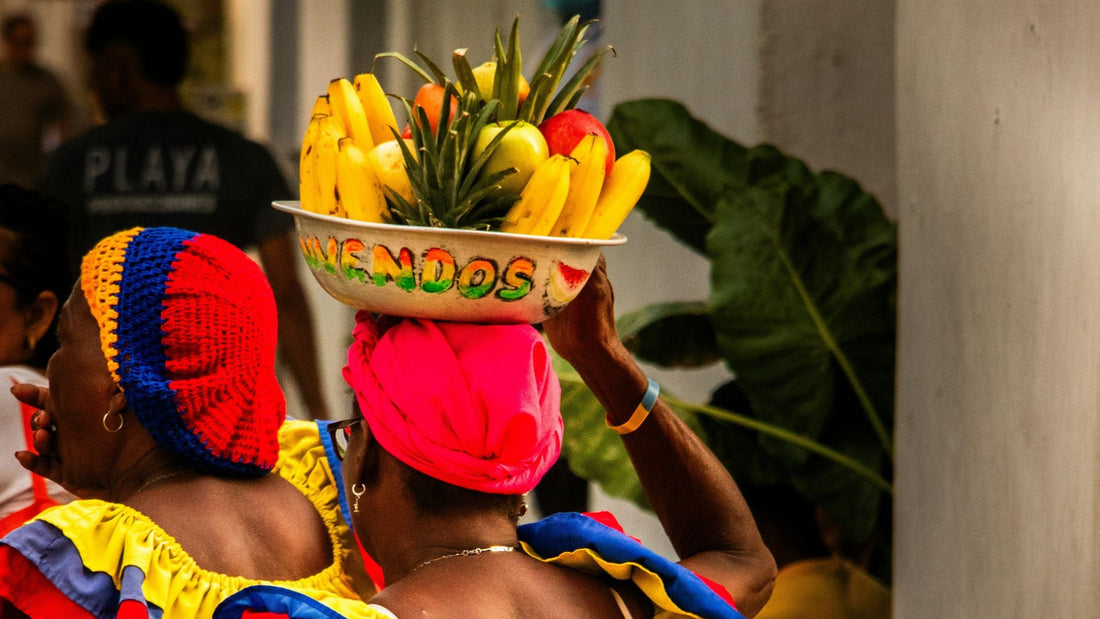
15 Colombian Spanish Verbs That Locals Use Daily but You Never Learned in Class
Share
Why Colombian Spanish Feels Different
There’s Spanish, and then there’s Colombian Spanish—a version of the language that pulses with rhythm, creativity, and cultural depth. In Colombia, language is more than communication. It's a living, evolving expression of identity, humor, and history. From the streets of Medellín to the plazas of Cartagena, you’ll hear verbs and phrases that you won’t find in textbooks—but that you must know to truly understand and be understood.
Many Spanish learners hit a wall not because of grammar, but because they simply don't have the tools to understand the real language used in daily life. Classroom Spanish might help you order coffee, but it won’t prepare you for a joke told with a wink, a teasing insult between friends, or a heartfelt story about struggle and hustle.
That’s where tools like Colombian Spanish Essentials make the difference. Instead of just translating phrases, it dives into what Colombians really say, how they say it, and why it matters—offering a fast track to cultural fluency.
In this guide, we explore 15 essential Colombian Spanish verbs that native speakers use every single day. These are verbs that will change the way you hear, speak, and feel the language.
1. Parchear – To Hang Out
More than just “hanging out,” parchear means chilling with your crew. It’s casual, relaxed, and very social. It comes from parche, a word that also means clique, gang, or chill spot.
Example:
Después del trabajo vamos a parchear donde Juan.
(After work, we’re going to hang out at Juan’s place.)
Use this verb when talking about any informal get-together, even if nothing much is happening.
2. Pillar – To Catch or Notice
Used in casual speech across the country, pillar is a powerful tool for calling someone out or acknowledging that you saw something important.
Examples:
- Pillé lo que dijiste. (I caught what you said.)
- ¿Pillaste ese meme? (Did you see that meme?)
It can also express understanding: ¡Ah, ya pillé! (Oh, now I get it!)
3. Rumbear – To Party Hard
Colombians don’t simply go out—they rumbear. It implies music, dancing, alcohol, friends, and staying out late. This verb is central to how many Colombians socialize and blow off steam.
Example:
El sábado vamos a rumbear hasta el amanecer.
(On Saturday, we’re going to party until sunrise.)
Rumbear is part of a lifestyle, not just an activity.
4. Jartar – To Drink (Usually Alcohol)
Jartar is street Spanish. It’s direct and doesn’t soften the fact that you’re drinking alcohol—often a lot of it.
Example:
Nos jartamos unas cervezas en la esquina.
(We had a few beers on the corner.)
It often implies excess or at least enough to feel it later.
5. Camellar – To Work (Hard)
This verb is gritty and respectful. It reflects the resilience of the working class and is deeply tied to Colombia’s economic culture.
Examples:
- Estoy camellando en una obra. (I’m working at a construction site.)
- Camellar no es fácil, pero toca. (Working isn’t easy, but you have to do it.)
It’s a badge of honor for many.

6. Vacear – To Embarrass or Roast
Vacear can be funny or cruel depending on tone. It’s common in schools, offices, and friend circles where roasting each other is a sign of closeness.
Example:
Lo vaciaron por llevar la camiseta al revés.
(They teased him for wearing his shirt inside out.)
Just be careful using this if you don’t know the social dynamics—it can cross the line.
7. Fritar – To Fry or Feel Burned Out
This verb’s metaphorical meaning reflects the mental exhaustion many students and workers feel.
Example:
Estoy tan frito que ni puedo pensar.
(I’m so fried I can’t even think.)
It’s a powerful way to express total fatigue.
8. Lambonear – To Brown-Nose
A lambón is someone who flatters authority excessively. Lambonear is used widely to call out fake praise or opportunism.
Example:
No seas tan lambón, que se nota mucho.
(Don’t suck up so much, it’s obvious.)
Useful in social commentary or even joking insults among friends.
9. Embalarse – To Get in Trouble or Overcommit
Used when someone takes on more than they can handle or ends up in a sticky situation.
Examples:
- Me embalé aceptando ese préstamo. (I got stuck after taking that loan.)
- Ella se embaló con esa relación. (She got caught up in that relationship.)
It paints a vivid picture of being overwhelmed.
10. Chicanear – To Flaunt
This verb expresses pride that borders on vanity. You might chicanear a new car, outfit, or even knowledge.
Example:
Deja de chicanear con tu nuevo reloj.
(Stop flaunting your new watch.)
You’ll hear it especially in cities like Cali, known for style and flair.
11. Peliar – To Argue or Fight
This colloquial version of pelear is more aligned with how locals actually pronounce and use the verb.
Example:
Siempre está peliando con todo el mundo.
(He’s always arguing with everyone.)
Great for sounding like a true local in daily arguments or complaints.
12. Manosear – To Touch Excessively
Context is key here—this verb can refer to anything from fidgeting with objects to inappropriate touching.
Examples:
- Deja de manosear los controles. (Stop fiddling with the controls.)
- Ese tipo manoseó a varias mujeres en la fiesta. (That guy groped several women at the party.)
Use it carefully—it can have serious connotations.
13. Mamar gallo – To Joke Around or Waste Time
One of the most iconic Colombian expressions, and one of the most fun to use.
Examples:
- Ese político está mamando gallo con esa promesa. (That politician is just playing around with that promise.)
- Deja de mamar gallo y ponte a estudiar. (Stop wasting time and study.)
No textbook will teach you this—but every Colombian uses it.
14. Encartar – To Be Burdened With Something
If you’re stuck holding a baby, an extra bag, or an unwanted task—you’re encartado.
Example:
Me encartaron con el perro mientras ellos salieron.
(I got stuck watching the dog while they went out.)
It expresses mild frustration, often in social situations.
15. Recochar – To Tease or Joke Affectionately
This verb captures the Colombian sense of humor: playful, teasing, and warm.
Example:
Solo te estaba recochando, no te pongas bravo.
(I was just teasing you, don’t get mad.)
It’s about bonding through laughter and irreverence.
The Power of These Verbs: Speak Like a Local, Not a Tourist
Each of these Colombian Spanish verbs opens a door to deeper, more meaningful communication. They carry cultural weight, emotional subtext, and social nuance. Using them naturally will make your conversations richer—and your listening skills sharper.
You’ll connect better with locals, catch jokes you would’ve missed, and avoid sounding stiff or overly formal. You’ll move from “learning Spanish” to truly participating in it.
And when you're ready to go beyond even these, the Colombian Spanish Essentials bundle is your next step. It’s packed with real-world audio, modern expressions, and grammar tips—all based on the actual Spanish spoken in Colombia.

Practice Makes Perfect: How to Use These Verbs Daily
Learning these verbs is just the first step. To really master them, you need exposure, repetition, and context. Here’s how to do it:
- Watch Colombian content: YouTube channels, novelas, and vlogs often use these verbs.
- Follow Colombian creators: Instagram stories, TikToks, and Twitter posts are great sources of natural language.
- Practice with locals: Tandem and HelloTalk are full of Colombians eager to exchange language and culture.
- Use them in writing: Start journaling in Spanish using at least one of these verbs per day.
With time, you won’t just understand these verbs—you’ll feel when and how to use them.

